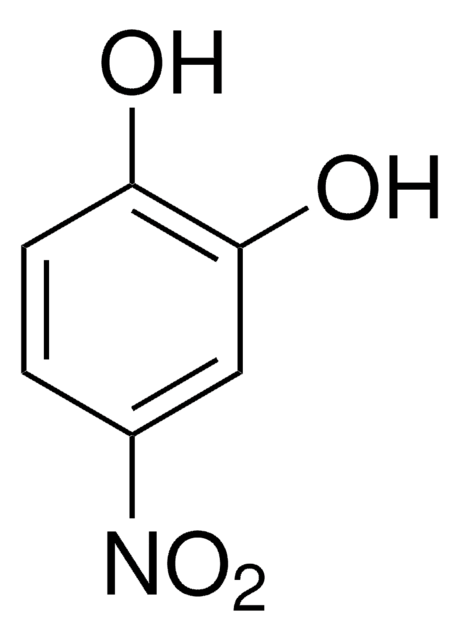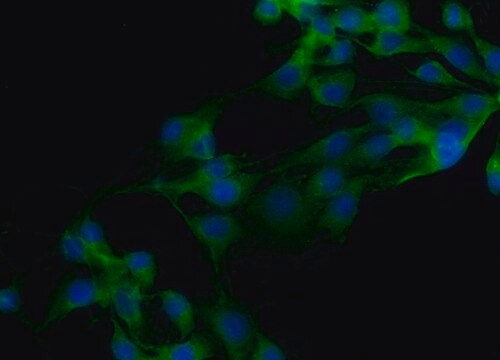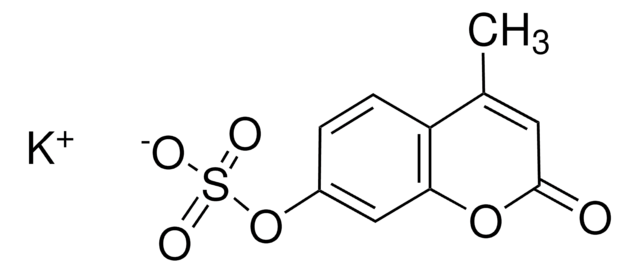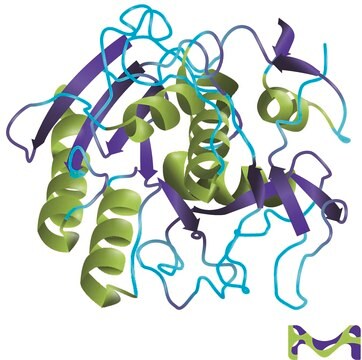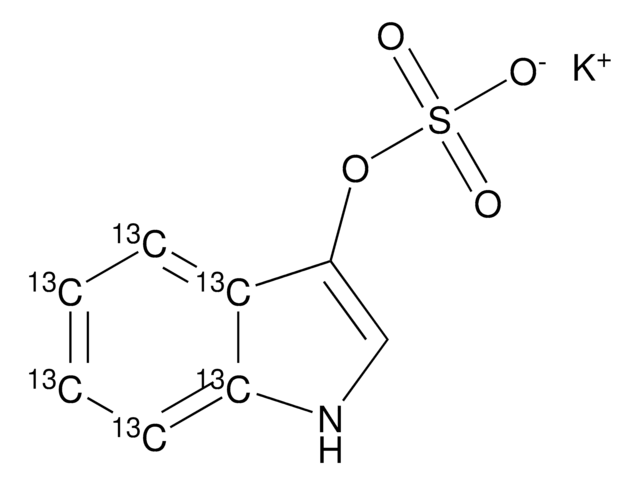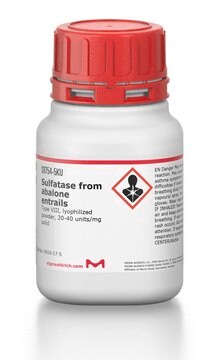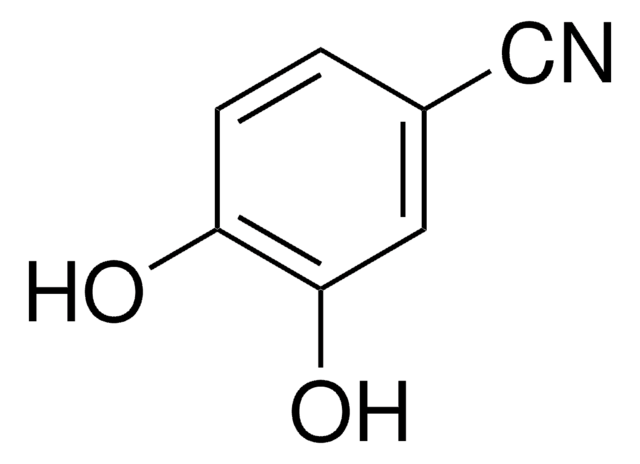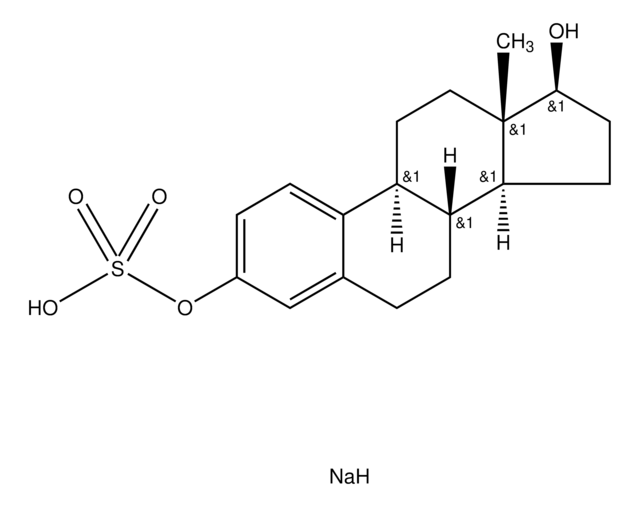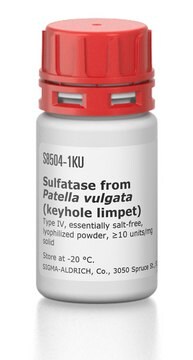N7251
4-Nitrocatechol sulfate dipotassium salt
crystalline
Synonyme(s) :
2-Hydroxy-5-nitrophenyl sulfate, 2-Hydroxy-5-nitrophenyl sulfate dipotassium salt monohydrate, p-Nitrocatechol sulfate dipotassium salt
About This Item
Produits recommandés
Forme
crystalline
Niveau de qualité
Couleur
yellow
Température de stockage
−20°C
Chaîne SMILES
[K+].[K+].[O-]c1ccc(cc1OS([O-])(=O)=O)[N+]([O-])=O
InChI
1S/C6H5NO7S.2K/c8-5-2-1-4(7(9)10)3-6(5)14-15(11,12)13;;/h1-3,8H,(H,11,12,13);;/q;2*+1/p-2
Clé InChI
CKWWBDCAYRJAJB-UHFFFAOYSA-L
Description générale
Application
Substrats
Mention d'avertissement
Warning
Mentions de danger
Conseils de prudence
Classification des risques
Eye Irrit. 2 - Skin Irrit. 2 - STOT SE 3
Organes cibles
Respiratory system
Code de la classe de stockage
11 - Combustible Solids
Classe de danger pour l'eau (WGK)
WGK 3
Point d'éclair (°F)
Not applicable
Point d'éclair (°C)
Not applicable
Équipement de protection individuelle
dust mask type N95 (US), Eyeshields, Gloves
Certificats d'analyse (COA)
Recherchez un Certificats d'analyse (COA) en saisissant le numéro de lot du produit. Les numéros de lot figurent sur l'étiquette du produit après les mots "Lot" ou "Batch".
Déjà en possession de ce produit ?
Retrouvez la documentation relative aux produits que vous avez récemment achetés dans la Bibliothèque de documents.
Les clients ont également consulté
Articles
Drug conjugate analysis and the enzymatic hydrolysis of glucuronides
Protocoles
Enzymatic Assay of Sulfatase (EC 3.1.6.1.)
Notre équipe de scientifiques dispose d'une expérience dans tous les secteurs de la recherche, notamment en sciences de la vie, science des matériaux, synthèse chimique, chromatographie, analyse et dans de nombreux autres domaines..
Contacter notre Service technique